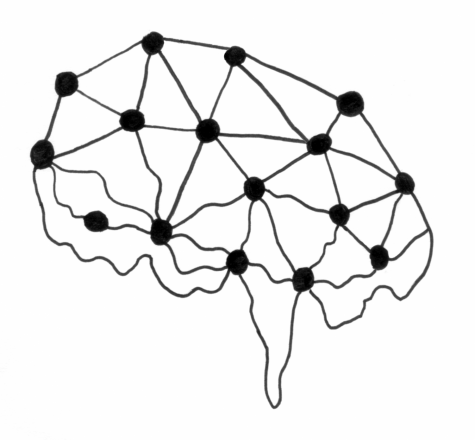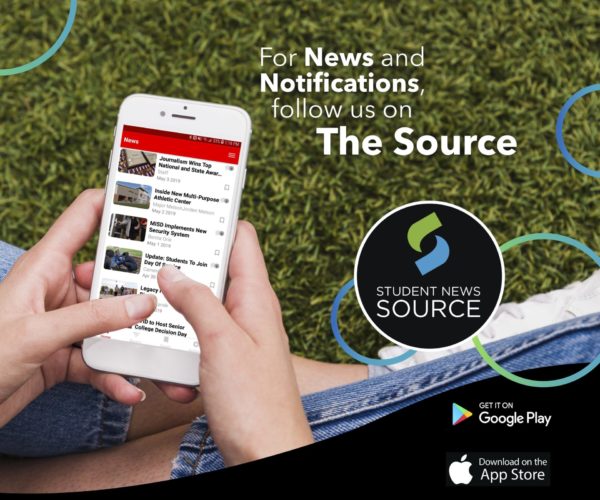Social media is not just a form of communication anymore, it is part of our identity. For some, every aspect of their lives is implanted on Facebook, Twitter, or Instagram. Their algorithms determine who and what we view. What if somebody with malicious intent gained ahold of this information?
On Mar. 25, Facebook officially announced that it had been collecting data from users. “This feature does not collect the content of your calls or text messages. Your information is securely stored and we do not sell this information to third parties,” Facebook said. Although Facebook claims that its members have known about this for a while, many claimed to have no knowledge. Some users found that Facebook had recorded their calls and texts at the exact times they occurred without their permission.
Companies based on the Internet usually gather user data to improve consumer experience. This allows them to identify the user’s interests and target them with relevant advertisements.
According to TechnologyReview.com, Google’s main income is through Google AdWords, a program that determines what ads consumers should see based on their search history. Every time a consumer clicks on an ad, the ad company pays Google anything from a couple of cents to $50 per click. However, while Google is fully transparent about this source of advertiser income, other companies are less than transparent about their relationships with advertisers.

Cambridge Analitica melts under pressure
Due to Google and Facebook’s control over phones, they have more access than most people realize. Dylan Curran of The Guardian found that “the data [Facebook and Google] collect includes tracking where you are, what applications you have installed, when you use them, what you use them for, access to your webcam and microphone at any time, your contacts, your emails, your calendar, your call history, the messages you send and receive, the files you download, the games you play, your photos and videos, your music, your search history, your browsing history, even what radio stations you listen to.”
Essentially, if it is on your phone, Google and Facebook have access to it.
Using information gathered, companies can put together your personal habits and predict your future actions. In a TED Talk on internet profiling, Associate Professor Zeynep Tufekci stated, “think of all the data that Facebook has on you: every status update you ever typed, every Messenger conversation, every place you logged in from, all your photographs that you uploaded there… by churning through all that data, these machine-learning algorithms — that’s why they’re called learning algorithms — they learn to understand the characteristics of people who purchased [anything] before. When they learn this from existing data, they also learn how to apply this to new people.
Through Internet activity, social media companies like Facebook form personalities of their users. They learn to know people as well as those people know themselves. This can be very dangerous information if put to malicious use, as a far-reaching site like Facebook could target vulnerable people with harmful messages that could strongly impact their later decisions.
People’s fears regarding their privacy were realized after Cambridge Analytica’s relationship with Facebook was revealed. Cambridge Analytica is a company dealing with political elections, using social media for data mining and analysis to profile voter demographics for a particular candidate. They aim to influence vulnerable viewers into backing whatever candidate Cambridge is employed by. In a statement at the 2017 Online Marketing Rockstars Festival, Cambridge Analytica CEO Alexander Nix stated, “…we were able to use data to identify that there was very large quantities of persuadable voters that could be influenced to vote for the Trump campaign.” By using data gathered through Facebook, Cambridge Analytica profiled Facebook users and targeted certain users with ads to influence the 2016 election. Their actions swayed more voters in Trump’s favor, causing him to gain more positive publicity and win the presidential election.
Cambridge Analytica originally obtained the information from a third party quiz app who told Facebook that it was for educational purposes. The data gathered by the app, which included information on 87 million Facebook users, was sold to Cambridge. In the words of Facebook CEO Mark Zuckerberg, “When we learned in 2015 that Cambridge Analytica had bought data from an app developer on Facebook that people had shared it with, we did take action. We took down the app, and we demanded that both the app developer and Cambridge Analytica delete and stop using any data that they had. They told us that they did this. In retrospect, it was clearly a mistake to believe them.”
Cambridge Analytica, while informing Facebook that the data was deleted, held onto it. “Professor Kogan [the creator of the quiz] is said to have taken data from over 70 million Americans. It has also been reported that he sold this data to Cambridge Analytica for $800,000. Cambridge Analytica then took this data and created a psychological warfare tool to influence United States elections.” Cambridge Analytica was first hired by Ted Cruz, then later employed by the Trump campaign.
This scandal aroused universal outrage on Facebook’s actions and lackluster response to Cambridge Analytica’s actions. On April 10th of this year, Mark Zuckerberg appeared before the Senate for questioning of Facebook’s response. “Across the board, we have a responsibility to not just build tools, but to make sure that they’re used for good. It will take some time to work through all the changes we need to make across the company, but I’m committed to getting this right. This includes the basic responsibility of protecting people’s information, which we failed to do with Cambridge Analytica,” Zuckerberg stated. After the hearing, Facebook’s net revenue and profit skyrocketed. It is still unknown by Facebook or the Senate if Cambridge Analytica still possesses the data of almost 60 million Facebook users.












